Class Updates
We’ve expanded our program to include more hands-on learning — tuition has been adjusted to reflect the added value.
Important Deadlines
New Students: Apply early—space is limited and not guaranteed.
Returning Students: Register by May 30, 2025 to guarantee your spot.
Students are accepted until classes are full
Students accepted to the Saturday Gene-ius Program must fill out an online registration form and submit payment by mailing us a check.
Saturday Gene-iuses
University of Hawaiʻi at Mānoa
3190 Maile Way, St. John 102
Honolulu, Hawaii 96822
University of Hawaiʻi, Mānoa teaching laboratories. We will inform you of your classroom location through email prior to the first session
Parking is available in the upper campus lots and in front of the St. John Building. There is no charge on Saturdays, Sundays, and state holidays.
Parking fees are subject to change at any time. Visit https://manoa.hawaii.edu/commuter/visitors for the latest information
All students will be required to purchase their own lab coat and bring their lab coat to class to participate in the lab. Students and any chaperones will be required to wear covered shoes
We do not accept walk-ins or telephone reservations for the Saturday Gene-ius program. We cannot accept cash and will not honor reservations without payment. Also, payment for all Saturday Gene-ius sessions are non refundable. If you have further questions, please visit our FAQ or email us!
10:00 am – 12:00 pm
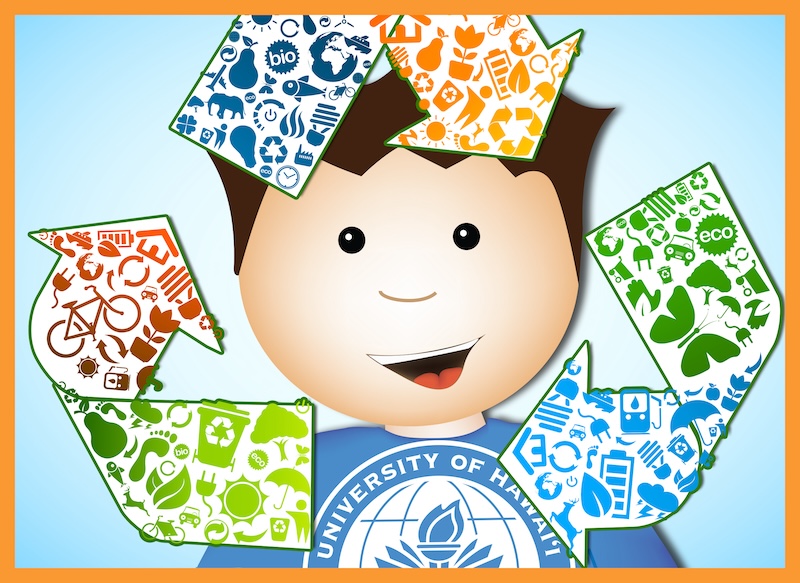
Have you ever wondered what happens to leaves and other plant material … aside from blowing onto your neighbor’s lawn, that is! In this lab, students will learn which organisms help the earth recycle and how they do it. They will also find out what happens to the items we leave at the curb for recycling and might be surprised to find out where it goes and what it is used for! The major activity in this lab will be to build a take-home living system that supports itself by recycling.

Last time we talked about molecules and this time we are going even smaller! In this lab, students will learn what atoms are and what they are made of by building their own life-sized model! They will also find out why matter matters, especially in agriculture, and conduct experiments where we have fun with density.
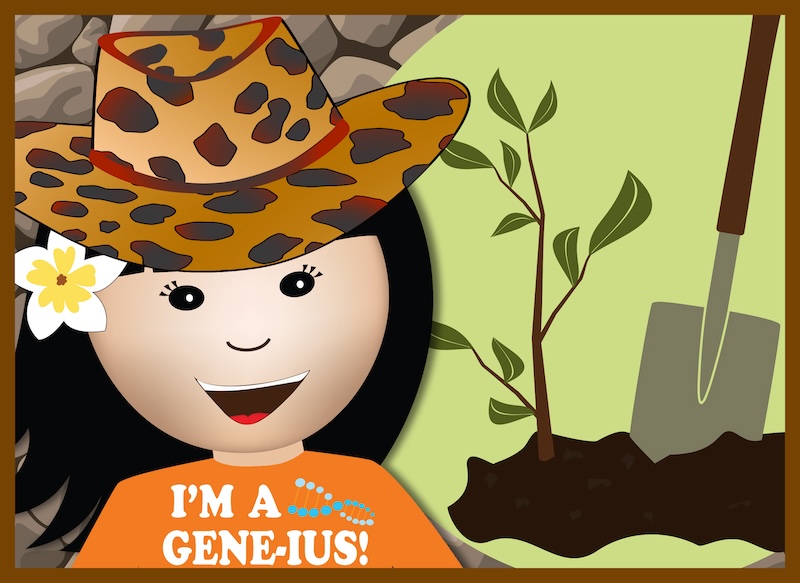
Now that students are familiar with the different rock types, we are going to dig a little deeper and find out how some rocks are made of the same stuff but are actually very different! In this lab, students will also learn about the hardness scale for rocks, and conduct experiments to learn more about metamorphic rocks and how and where crystals form. Finally, we will explore why rocks are so important to agriculture.
10:00 am – 12:00 pm
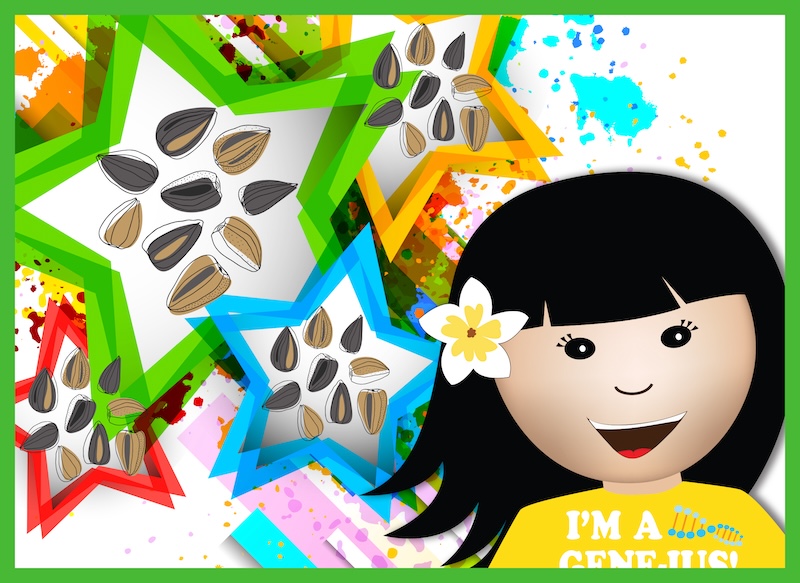
In this lab, students will be introduced to some incredible seed characteristics and facts. For example, can you think of a seed that is commonly used to make paint? What seed is the world’s oldest spice? Why are chili peppers so hot and why can birds eat the seeds? Students will also investigate whether plants can reproduce without seeds and build a take home experiment to observe the results!
10:00 am – 12:00 pm

The world is full of diversity! Did you know that all animals don’t see things the same way? In this class we will try to trick your human eyes and and then show you just how dogs and bees view the world. During this class you will also get to build your very own optical illusion to take home!
10:00 am – 12:00 pm

In part one, we talked about how all-living things are made of cells. In this lab the focus is on single celled organisms and students investigate the unique shapes and functions of these species using microscopes. They will also closely examine unicellular organisms we consume as food!
10:00 am – 12:00 pm
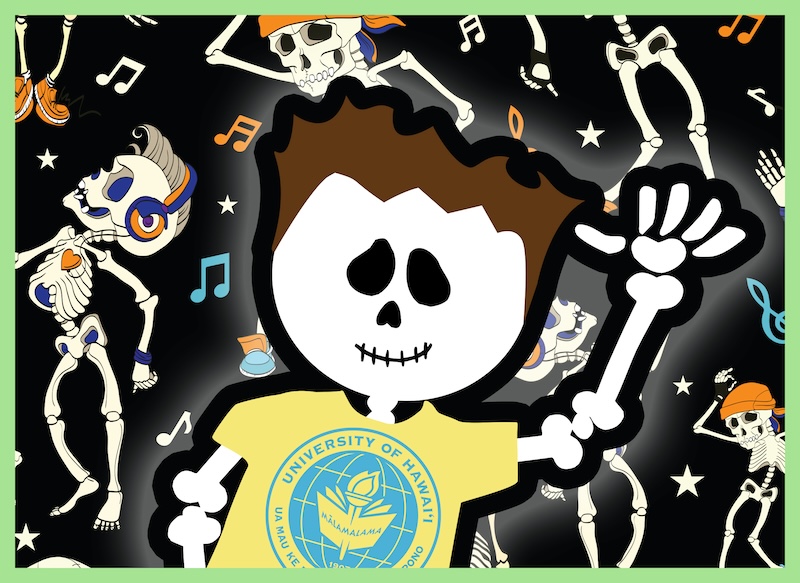
Spooky skeletons swarm the lab as we learn about bones and their functions! In this lab you’ll learn the names of different bones, what makes bones so strong, and how joints keep skeletons flexible. You’ll even get to dissect and owl pellet to look for the bones of its last meal!
10:00 am – 12:00 pm
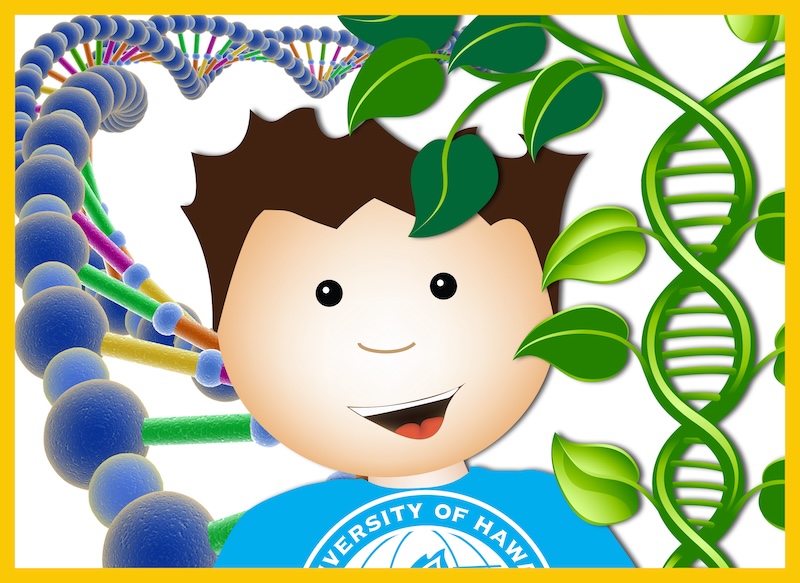
Now that you’re experts on human traits, get ready to learn all about plant traits! Students will be introduced to Gregor Mendel, a super cool scientist that worked on pea plants, to investigate exactly how traits are passed down from parents to offspring. Then, get ready for the biggest DNA experiment EVER!
10:00 am – 12:00 pm
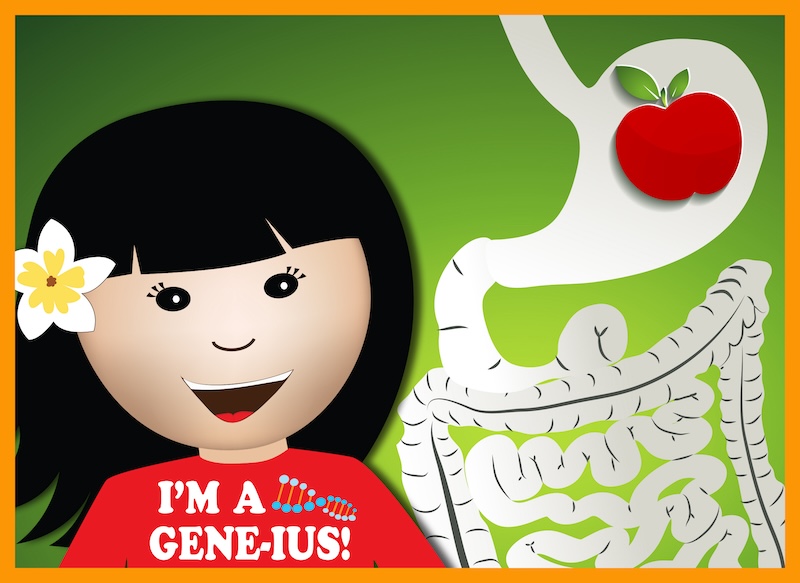
Are you curious about what happens to your food after you swallow it? Seriously, how far does that stuff travel? What happens to it? In this lab we explore the serious side of digestion and conduct experiments to better understand lactose intolerance. Students will also explore the funny side of digestion (excessive flatus aka farts!) and learn how that hot air is produced!
10:00 am – 12:00 pm
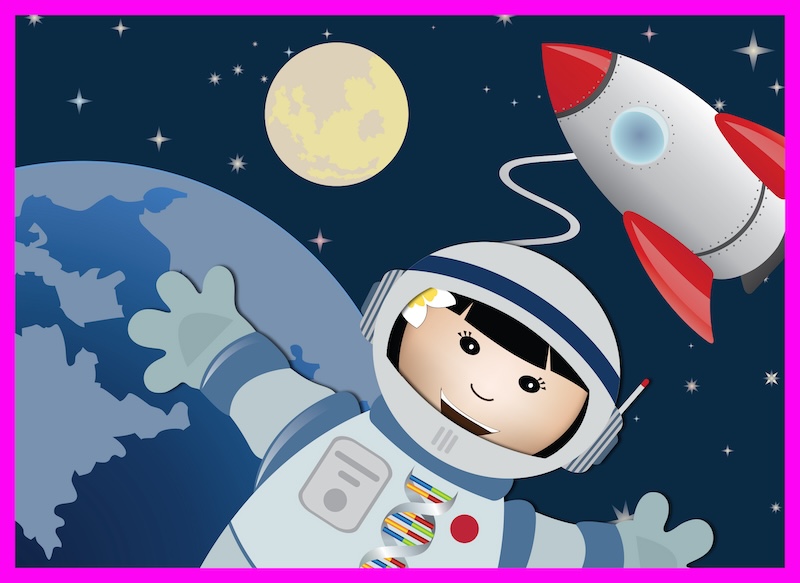
Of all the planets in our solar system, Earth is still our favorite! We dig deep into the physical aspects of earth, exploring gravity, magnetism, moon effects and more! We also discuss the Earth’s rotation, its tilt and the impact this has on where and when we can grow our food. For those students excited about what’s beyond our solar system, we are going to build “star cans” of major constellations to take home and further their exploration of space.
10:00 am – 12:00 pm
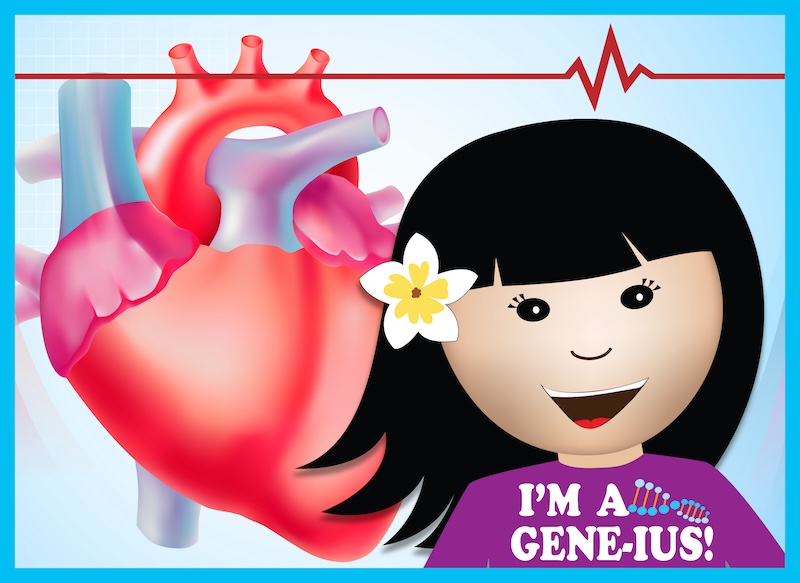
You’ve all felt your heartbeat before. You’ve likely seen your own blood when you got a cut, then watched it form a scab. This lab explores each of these physiological functions: how your heart works, the different components of blood, and how blood carries oxygen and forms scabs. You don’t want to miss this lab. It’s sure to be a bloody good time!
10:00 am – 12:00 pm
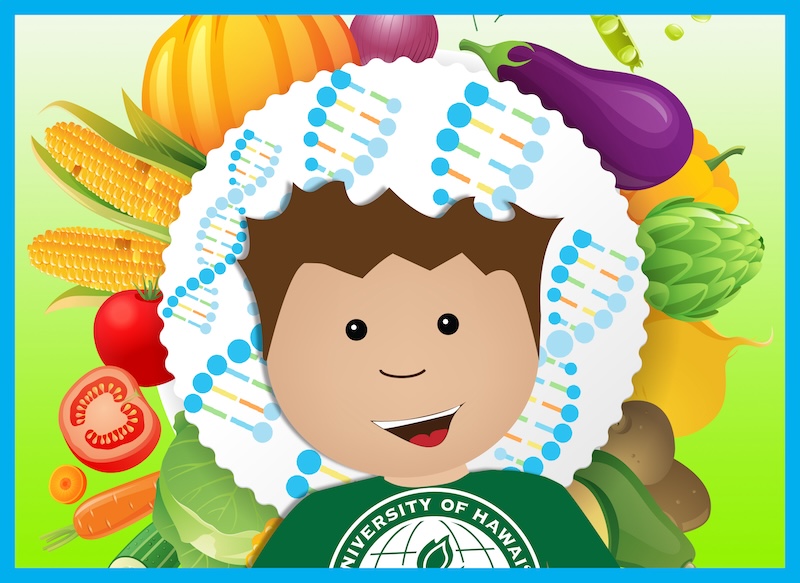
Human society has long been tied to agriculture. Our ability to cultivate plants and animals has allowed us to settle all over the world. The science we use in agriculture is ever changing as we learn more about how farms connect to the landscapes around them. Learn about how these important processes work to support our ever-growing population.
* Please note that some lessons may be subject to change due to product availability *
© 2024 College of Tropical Agriculture and Human Resilience • 3050 Maile Way • Honolulu, HI 96822
UH Manoa | UH System | Accessibility | Privacy | Terms of Use